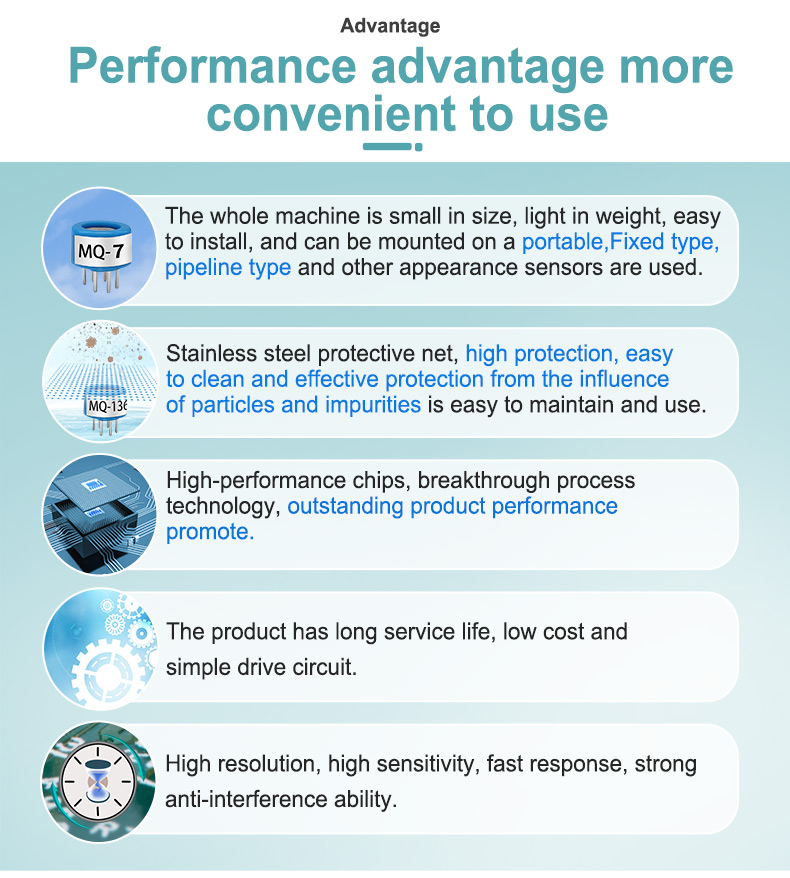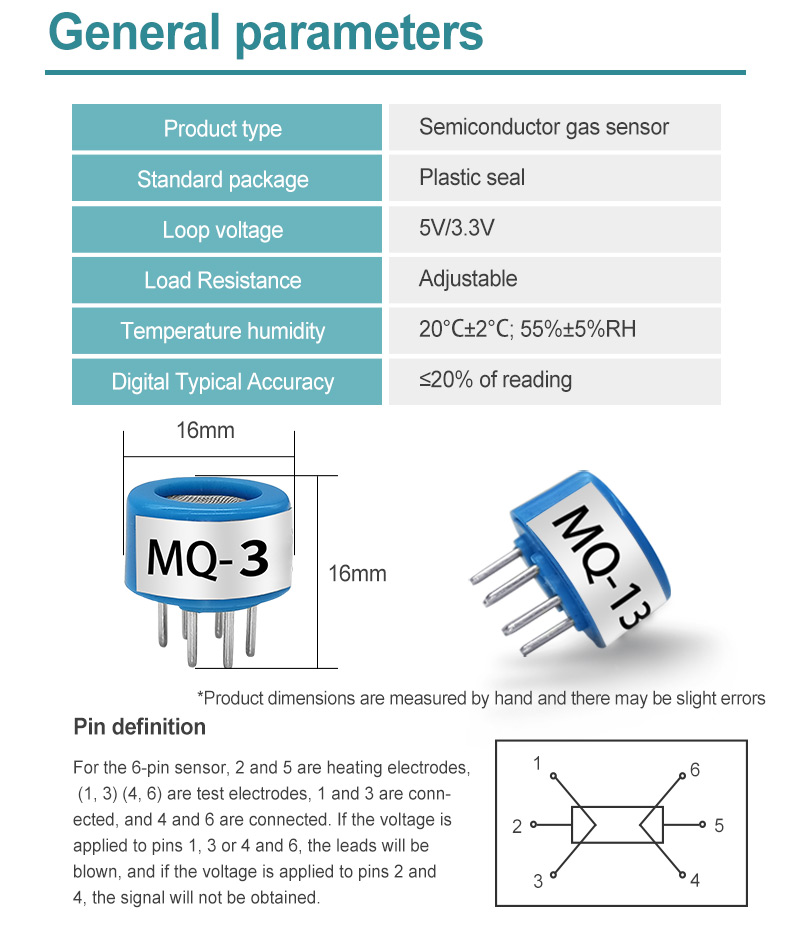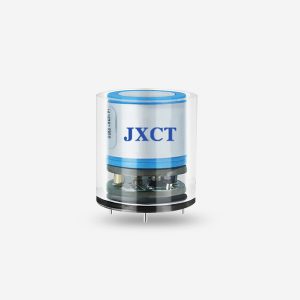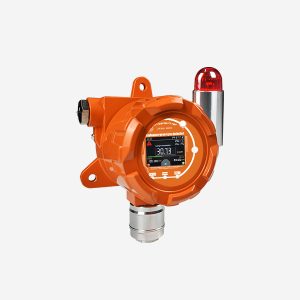Semiconductor H2 gas sensor Introduction
The semiconductor H2 gas sensor is a hydrogen sensor developed by the company using advanced semiconductor gas detection technology and dual-channel signal output. It has the advantages of accurate measurement, stable performance and long service life. Semiconductor H2 gas sensor with stainless steel protective net, can not be affected by particulate matter and impurities, anti-interference ability is strong, easy to maintain. The hydrogen transmitter is widely used in household gas alarm, industrial gas leak alarm, and portable gas detector.
![]()
Semiconductor H2 gas sensor Features
1, the machine is small in size, light in weight, easy to install, can be mounted in portable, fixed, pipe type and other appearance sensors used.
2, stainless steel protective net, high protection, easy to clean effective protection from particulate matter and impurities, easy to maintain and use.
3, high-performance chip, breakthrough manufacturing process, product performance significantly improved.
4, long service life, low cost, simple driving circuit.
5, high resolution, high sensitivity, fast response speed, strong anti-interference force.

Semiconductor H2 gas sensor Parameters
Detection gas: hydrogen
Hydrogen detection range: 100-1000ppm
Product type: semiconductor gas sensor
Standard package: Plastic seal
Loop voltage: ≤24V DC
Load resistance: adjustable
Temperature/humidity: 20°C, 2°C; 55% 5% RH

Application:
This product is widely used in household gas alarm, industrial gas leak alarm, and portable gas detector.
FAQ
What is hydrogen?
Hydrogen is a kind of elemental form of hydrogen, with chemical formula H₂ and molecular weight of 2.01588. At normal temperature and pressure, hydrogen is a colorless, tasteless, highly combustible and insoluble gas in water. Hydrogen has a density of 0.089g/L (101.325kpa,0°C), which is only 1/14 of that of air, making it the least dense gas known in the world.
What is a hydrogen sensor?
Hydrogen sensor is very sensitive to hydrogen at room temperature and has good selectivity, which can be used as a sensor to detect hydrogen concentration in the environment. Due to the safety requirements in production and life, fast, sensitive and accurate hydrogen sensor is very necessary to avoid the possibility of explosion in time.
What are the applications of hydrogen?
1. The use of hydrogen is determined by the nature of hydrogen. For example, hydrogen is the least dense of all gases and can be filled into a sounding balloon.
2. Hydrogen can be inflatable ball or air boat, used as heat conduction material in the dihydrogen internal cold generator, smelting non-ferrous metals and high purity germanium, silicon, synthetic ammonia, hydrochloric acid, petroleum hydrogenation, hardening oil, high efficiency fuel, hydrogen and oxygen flame.
3. Hydrogen is the lightest gas and is most commonly used to fill hydrogen balloons and airships. Hydrogen is an important chemical raw material.


Reviews
There are no reviews yet.